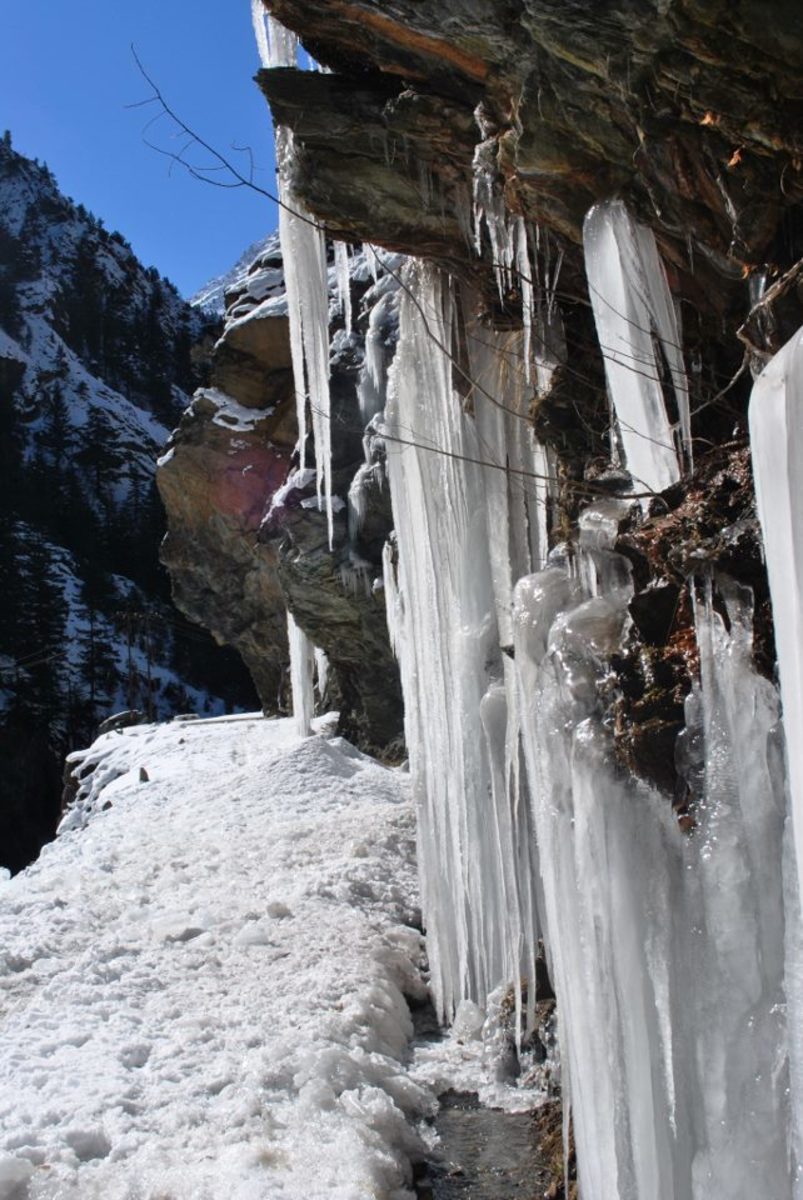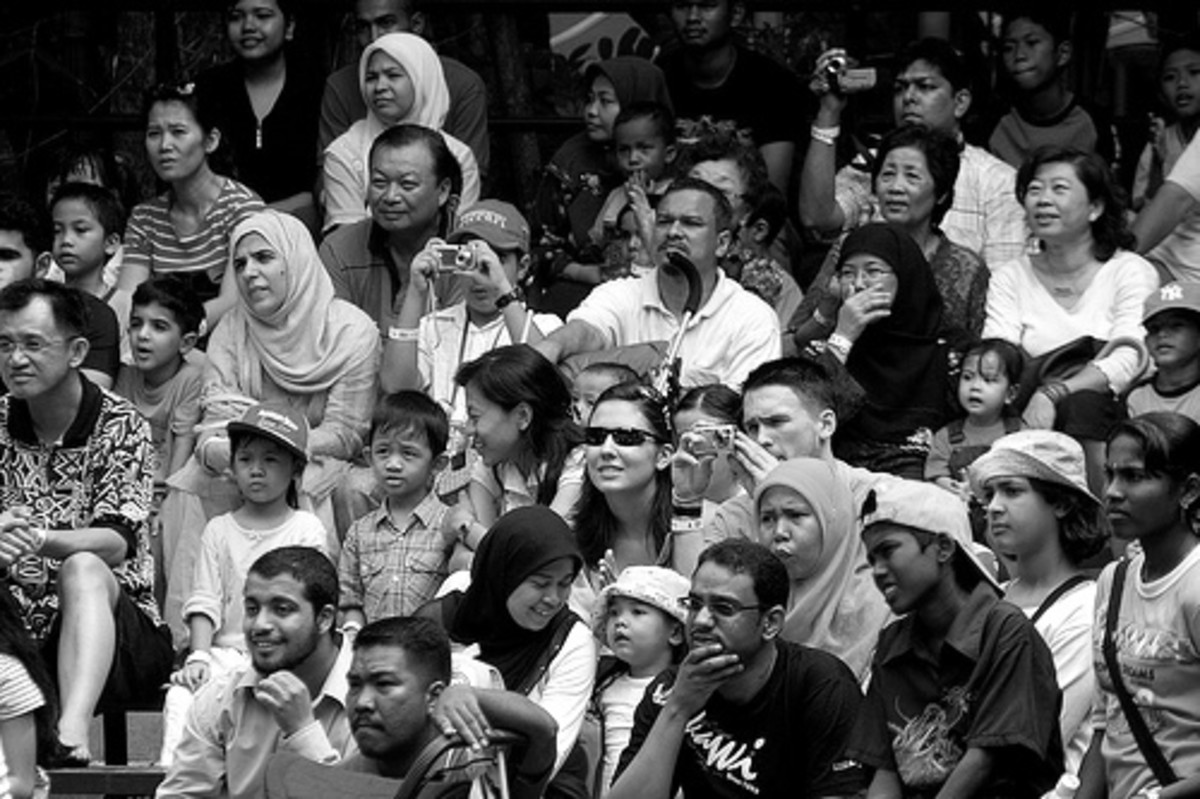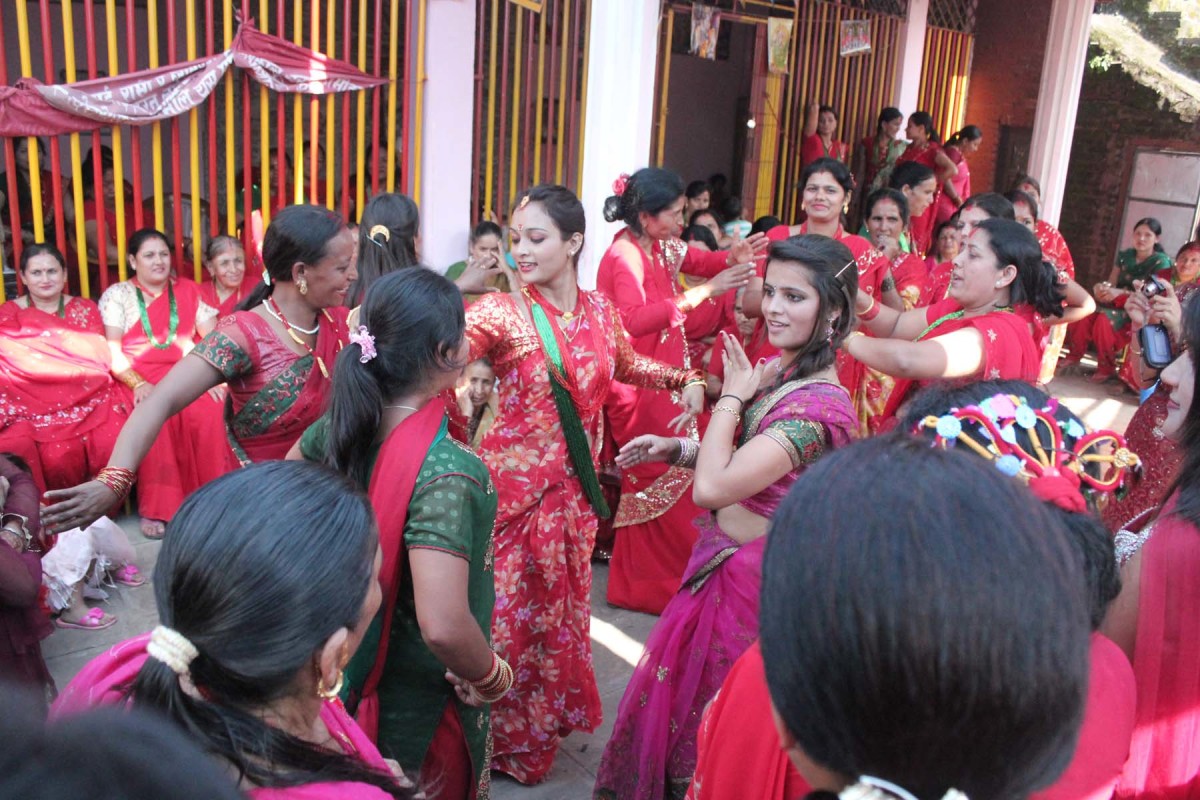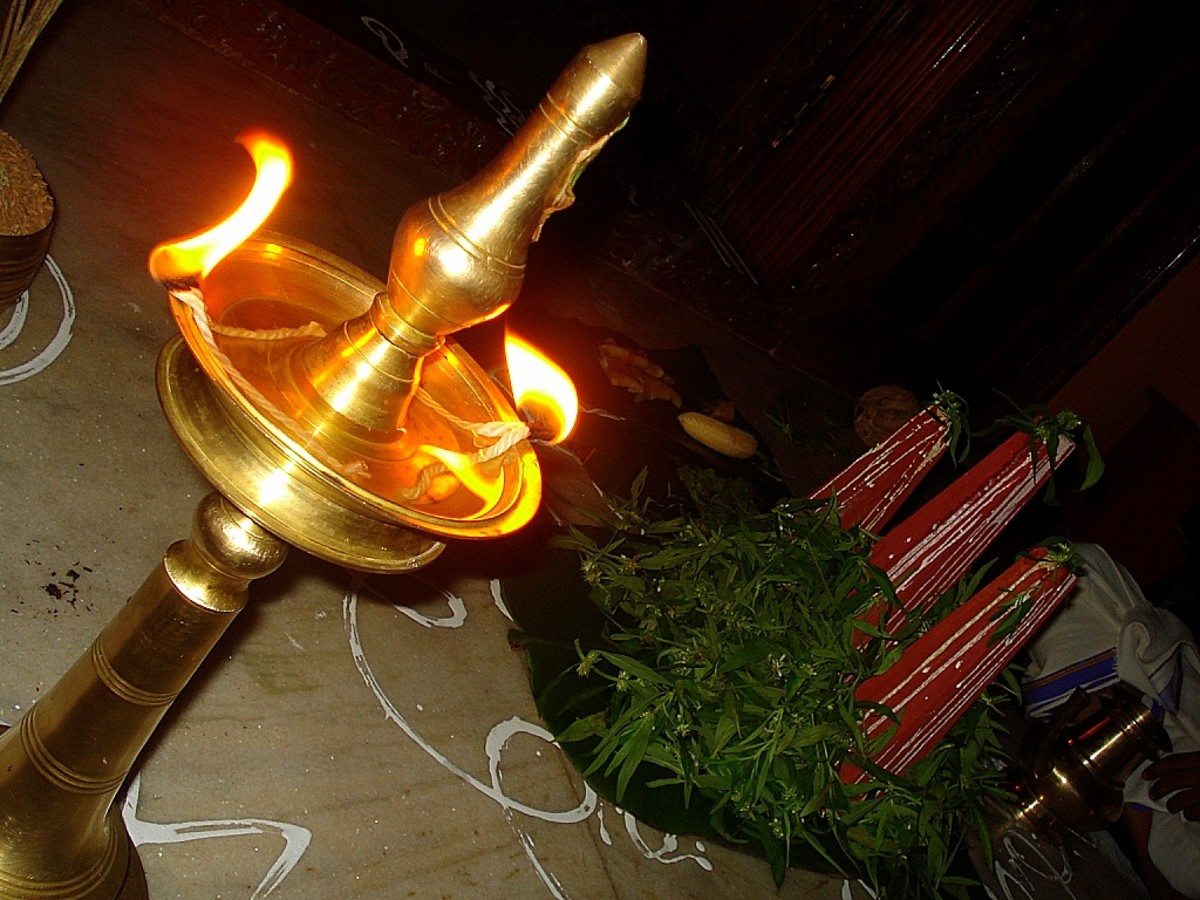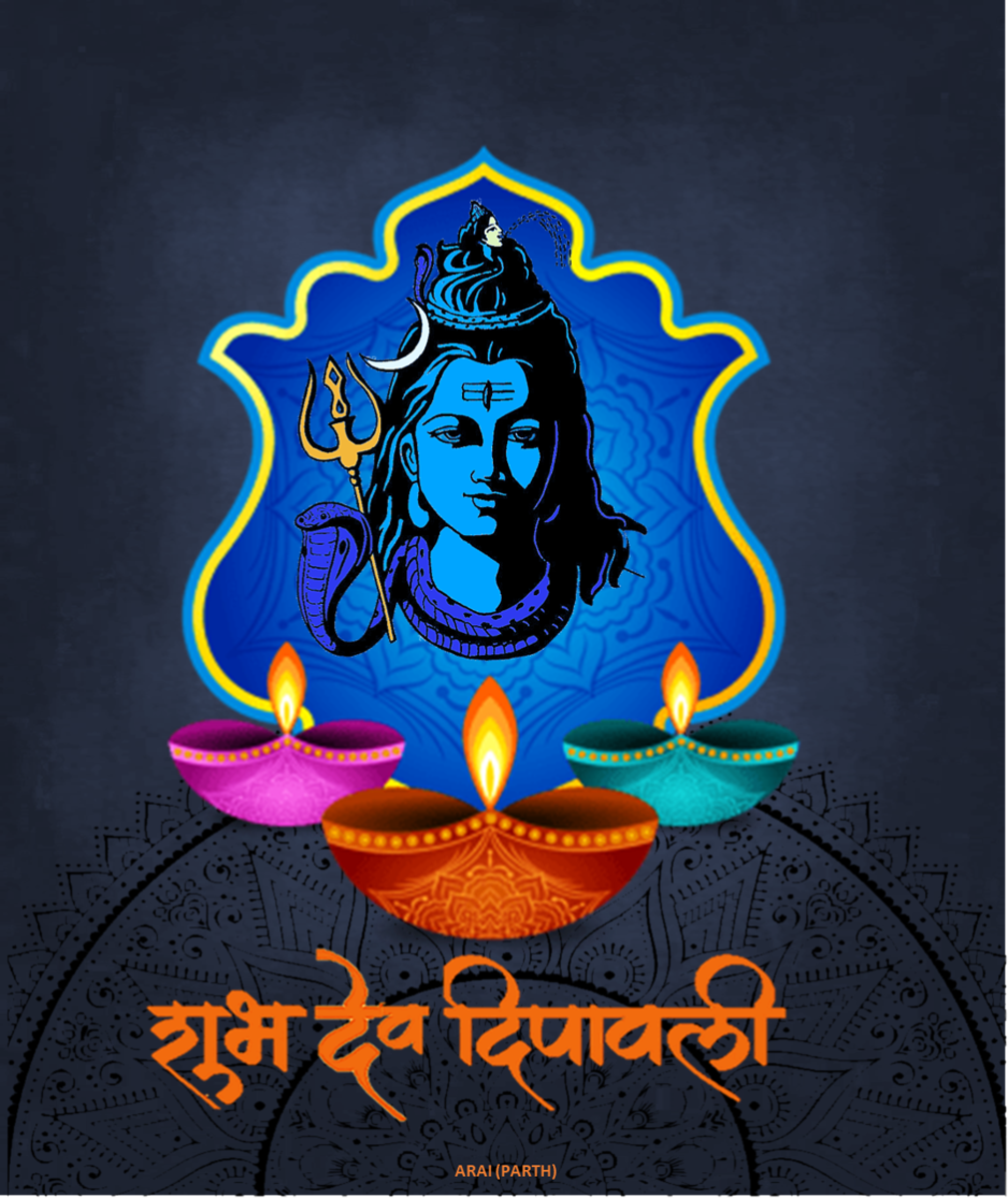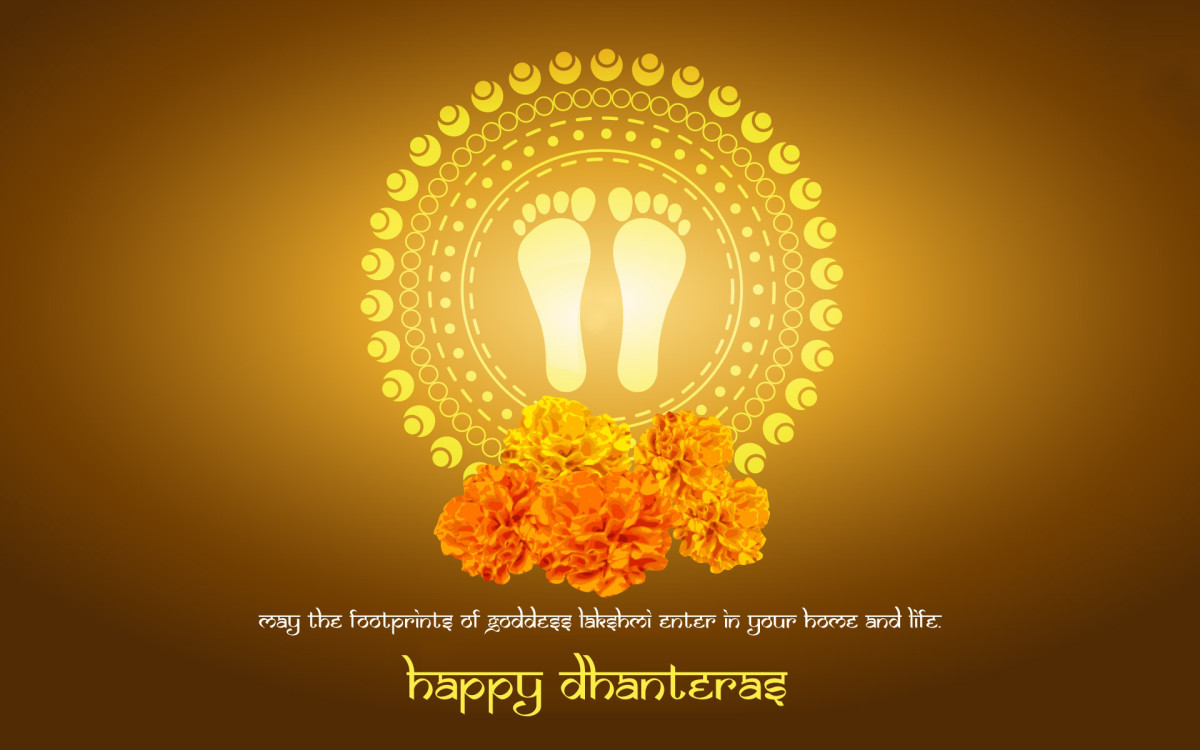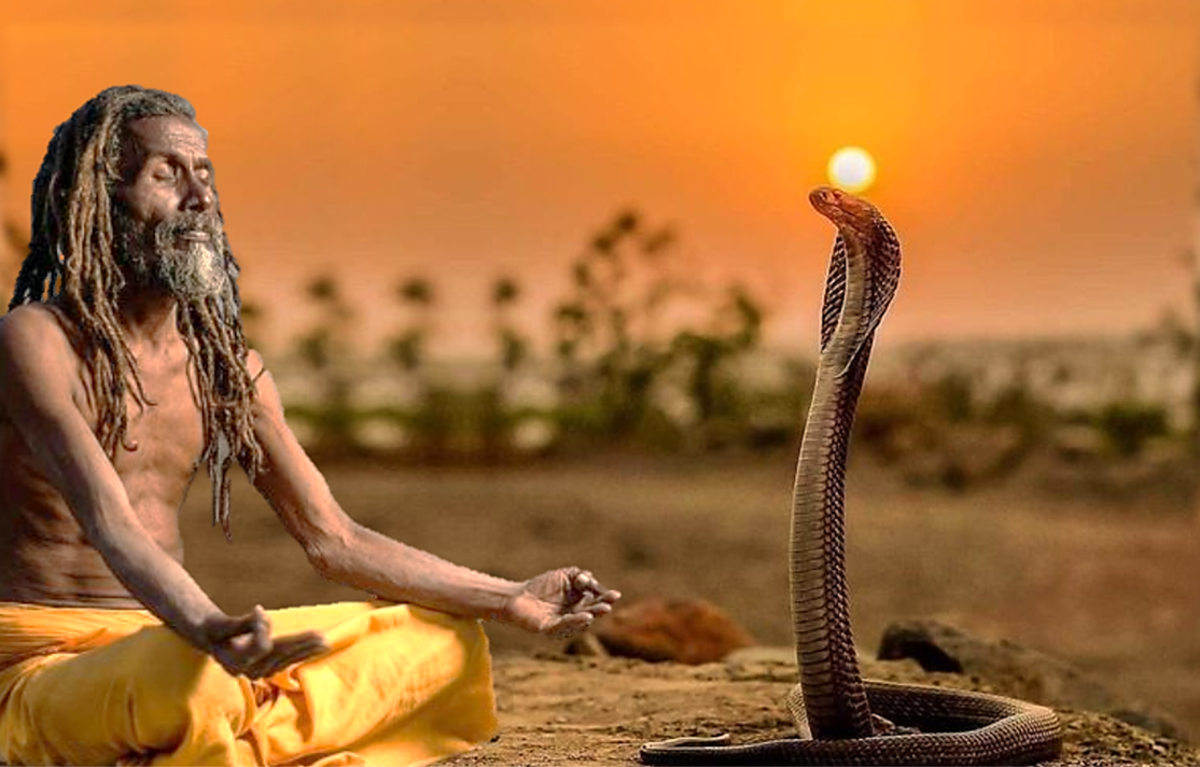Various New Year Festivals in Different Parts of India - Celebrations and Traditions
India is a culturally rich country. Every state in India has its own history behind their new year celebrations. The festivals are based on their own calendars. This means that there are so many local calendars exist in that country and are referred to regularly even today. And this also makes that India celebrate new year all through the year. While the official calendar they follow these days was adapted from the Roman calendar, but many of the Indian new year celebrations are based on the Lunar Hindu Calendar.
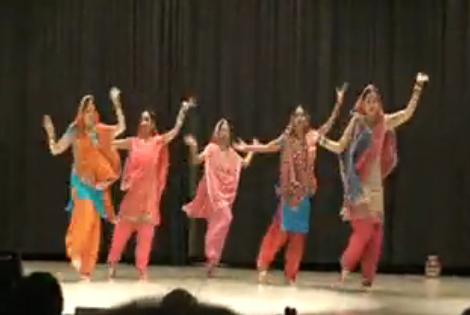
Baisakhi
Baisakhi, Vasaikhi or Vasakhi is a harvest festival, religious festival as well as New Year’s day all rolled into one. Baisakhi is celebrated across North Indian states by all people regardless of religion. In fact, this festival is celebrated all over India as New Year’s day but under different names. It also marks the beginning of the Hindu solar New Year. Baisakhi falls on the April 13 each year (and 14 in every 36 years) – the first day of the year in the Nanakshahi calendar. For the Sikh community, baisakhi is considered as one of the most important holidays as it was on this special day that their tenth and last Guru (Guru Gobind Singh) made the Sikhs into Khalsa or the ‘pure ones’. Sikh devotees will usually attend Gurdwara before dawn with special flowers and offerings in hand. Baisakhi comemorates the day when the Guru eliminated caste differences and Khalsa Panth was founded in 1689. In many places, people will go and take a bath in sacred rivers like the Ganges. They wear new clothes, singing, dancing, enjoying the many parades, eating traditional foods and many more.
Bestu Varas
Also known as Varsha pratipada or Padwa, it is a festival that marks the Gujrati New Year. This festival falls in the month of Oct or Nov. Traditional Gujratis follow Bikram Samwat or Vikram Samwat. Gujrati new year is synonymous with ‘sudekem’ of the month of ‘Kartik’. According to legend, Lord Krishna did not like the people to worship Lord Indra who was believed to pour ample rain to help the crops to grow. He explained to them that whatever human gets in their life is the result of their own karma. Lord Krishna then told the people Brahmins, cows and mount Govardhaan is more important than worshipping Lord Indra. Since then people began to worship mount Govardhaan every Gujrati new year. In the early morning as Hindu believes that morning starts at 4am, the new year’s day starts with heavy fireworks. The local boys sell raw salt called “sabras” to make the these days prosperous. Houses are decorated with certain flowers and bright light.
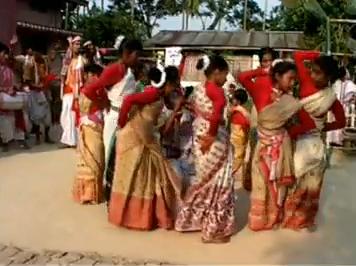
Bihu Festival
Bihu is the most important festival to the Assamese people. Bihu is celebrated thrice a year: Bohaag or Rongali Bihu in April, Bhogali or Magh Bihu in January and Kati or Kongali Bihu in October/November. This national festival marks the change of season: Bohaag Bihu marks the advent of seeding time as well as the first day of Hindu solar calendar, Bhogali Bihu marks the end of the harvesting period and Kongali Bihu marks the completion of sowing of paddy as well as the transplantation of ‘Kowthia’ (the saplings).
Chaitra Pratipada (Ugadi)
Chaitra Pratipada (also called as Chaitra Shukla Pratipada) marks the new year for people in Uttar pradesh, Jharkland and Bihar. It starts on 1st day of Chaitra – the Hindu calendar. This is a very special day for the Hindus because Lord Brahma created the universe on this day. This festival is also known as Gudhi Padwa in Maharashtra and Ugadi in Karnataka and Andhra Pradesh.
Chaitti and Basoa/Bishu
Chaitti and Basoa are New Year festivals celebrated in the state of Himachal Pradesh. It is the first day of the year based on the Vikram Samwat of the Hindu calendar. Basoa is celebrated on the first day of Baisakh month and Chaitti is celebrated on 14th of April. The festival of Basoa is also known as Bishu. The aboriginal and the farming folk celebrate Basoa festival. Little cakes are made with Kodra (a coarse grain) flour 3 days before the festival, they wrap them up in leaves and leave it to ferment. After that they are opened and eaten on first day of New Year, shared with friends and relatives and accompanied by honey and sweet water. A ritual song is sung on this occasion.
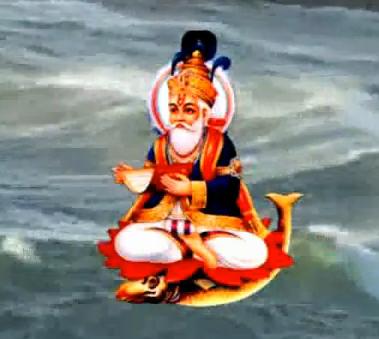
Cheti Chand
Cheti Chand is the Sindhi New Year which is celebrated on the 2nd day of Chaitra month (that is why it is called as CHET-I-CHAND or Chet in Sindhi. This auspicious day is also celebrated as the birth anniversary of Jhulelal or Ishtadeva Uderolal – the patron saint of Sindhis. This most popular Sindhi festival is celabrated during the waxing phase of moon of Chet month. During the new year’s day, people will visit Jhulelal temple early in the morning. Certain rituals will be performed in the temple throughout the day. Traders and businessmen like to open their new account books or ledgers on this auspicious day. People will also worship water – the elixir of life. Certain activities and rituals will be done in order to worship the God of Water who was said to had saved the Sindhi people from a tyrannical leader named Mirkhshan in the past.
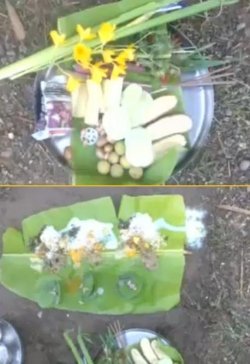
Cheiraoba
Cheiraoba, or also known as Sajibu Cheiraoba is a new year for the Meiteis in Manipur. It is celebrated every year on the first day of Sajibu month. Cheiraoba is celebrated on two different days – Sajibu Nongma Panba (first day of Sajibu by traditional Sanamahi Laeninglup) and on the day of Charak Pujah of Bengal (introduced by king Bhaeigyachandra Maharaja). The first one follows lunar calendar while the second one follows solar year asrologically. On this special day, they believe that Sidaba Laininthou will be staying on the altar of the house therefore the day is also regarded as the most sacred day.
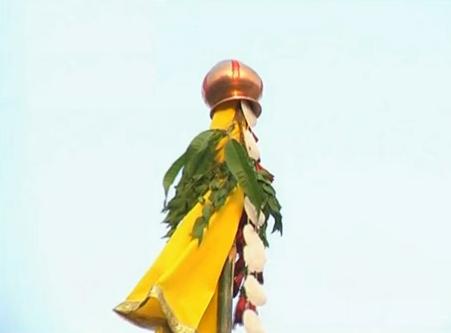
Gudi Padwa
Gudi Padwa is also known as Ugadi in Andra Pradesh and Karnataka, it is known as Gudi Padwa in Maharashtra. In other parts of country this festival is celebrated during Naou Roz (Kashmir), Goru Bihu (Assam), Vishu (Kerala), Puthandu (Tamil Nadu), Naba Barsha (Bengal), Baisakhi (Punjab) and Cheti Chand (Sindhi). In Gudi Padwa festival, you will see many traditional gudis hanging out of the windows. It is a bright yellow or green cloth adorned with brocade tied to the tip of a long pole of bamboo over which gathi or sugar crystals, neem leaves, a garland of red flowers and a twig of mango leaves is tied. A copper or silver pot is placed in the inverted position over it. It is usually hoisted outside the house or in a window so that everybody can see it. Gudhi is regarded as a symbol of victory and is believed to ward off evil, invite good luck and prosperity into the house.
Maha Vishuva Sankranti
Maha Vishuva Sankranti or Pana Sankranti is the Oriya New Year which generally falls on 13 – 14 of April. It is observed during the transition of the sun into Aries or Mesha rashi. This festival also marks the beginning of the New Year based on the traditional Hindu solar calendar. On this special day, religious people will be offering delicious Pana – a sweet drink made of milk, water, different types of fruits, bella, curd and sugar or jaggery, to the Tulsi Plant, Shalagram and Lord Shiva and their deities in various Temples of the state. During this festival, there will be many water pots hung or placed on the roadsides to help the thirsty souls. They will be offering water to birds and animals also with equal enthusiasm.
Navreh
Navreh is the lunar new year celebrated by people in Kashmir. The Kashmiri Pandits celebrate it on Chaitra Shukla Pratipada (first day of Chaitra month). On their new year’s eve (Amavasya), they keep a thali filled with rice, a silver coin, cooked rice, some walnuts, a cup of curds, an inkpot and a pen, a bread, and the Panchanga of the New Year, as their first objects to be seen at the Brahhma Muhurta or the wee hours. This Panchanga (Nachi Patri) is an almanac giving important astrological configurations and auspicious dates or tithis and other important religious information for the coming year. It has been a tradition to keep this Nachi Patri handy for consultation in every Kashmiri Pandit household as social and religious obligations are performed according to it.
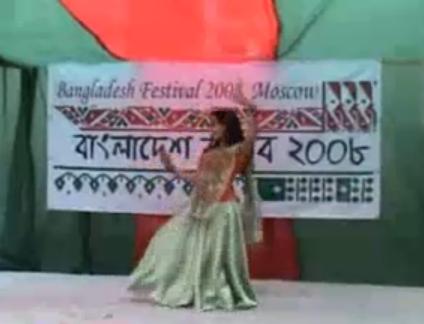
Pohela Boishakh
Pohela Boishakh falls on the first day of Bengali calendar. Also known as Bangla or Bengali New Year, this festival is celebrated in Bangladesh, West Bengal, in Bengali comunities in Tripura and Assam. In Bangladesh Pohela Boishakh is celebrated on April 14 and it is a national holiday. In Bengal and Assam Pohela Boishakh is celebrated on April 15 and it is a public holiday.
Puthandu
Also known as Varsha pirappu, it is a new year celebration for Indian people in Tamil Nadu. The festival is celebrated on the first day and month of the Tamil calendar, which is generally falls on 14th of April. On this special day, people will greet each other ‘Puthandu Vazthukal’ (Happy New Year). It is said that on this day Goddess Menakshi got married to Lord Sundareswarar. ‘Maanga Pachadi’ is eaton on this day, a traditional food that is made of raw mangoes, jaggery and neem flowers. Other popular tradition from this festival is viewing Kanni at dawn. Kanni means ‘auspicious sight’ and by doing this, they believe they will receive good luck. People also start day by watching some auspicious items like jewelry, nuts, fruits, betel leaves, vegetables, flowers, coconuts and raw rice.
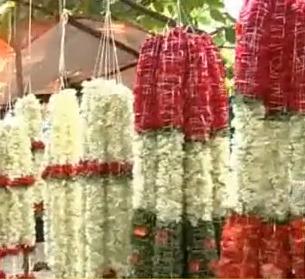
Ugadi Festival
Ugadi or Yugadi is the New Year’s day for people in Karnataka and Andhra Pradesh. It marks the first day and month of the Saka calendar. Since the date of the celebration is based on the Hindu lunisolar calendar, therefore Ugadi falls on different day every year. The most important part of this festival is Panchanga Shravanam which is done by the priests at the temples. Lord Brahma (the creator of the universe) is worshipped on this day. Traditional food called Ugadi Pachchadi (a dish with six tastes) will be served. The food symbolizes happiness, sadness, anger, disgust, fear and surprise. This experiences are to remind people that life is not a smooth journey and all of them must be given due importance.
Related Links
- Vietnamese New Year
New year in Vietnam is also known as Tet - Spring Festival Facts
Interesting information about Spring Festival - Chinese Lunar Calendar
How Chinese lunar calendar (Xia calendar) works. What is Lap Chun and lunar leap year. Learn more here..
Vishu
Vishu is a new year festival celebrated by people in Kerala. The word Vishu means ‘equal’ and this Keralite special day falls on the first of Malayalam month of Medam (around mid-April in Gregorian calendar). It is also the day when the sun enters Mesha zodiac. The most important in Vishu is the Kani Kanal or Vishukkani (meaning ‘the first thing we see on the day of Vishu after we wake up’). They believe that what they see when they first open their eyes on Vishu in the morning is an indication of what they can expect in the year to come. Special care is taken so that all members of the family will not see any other thing except Vishukani

